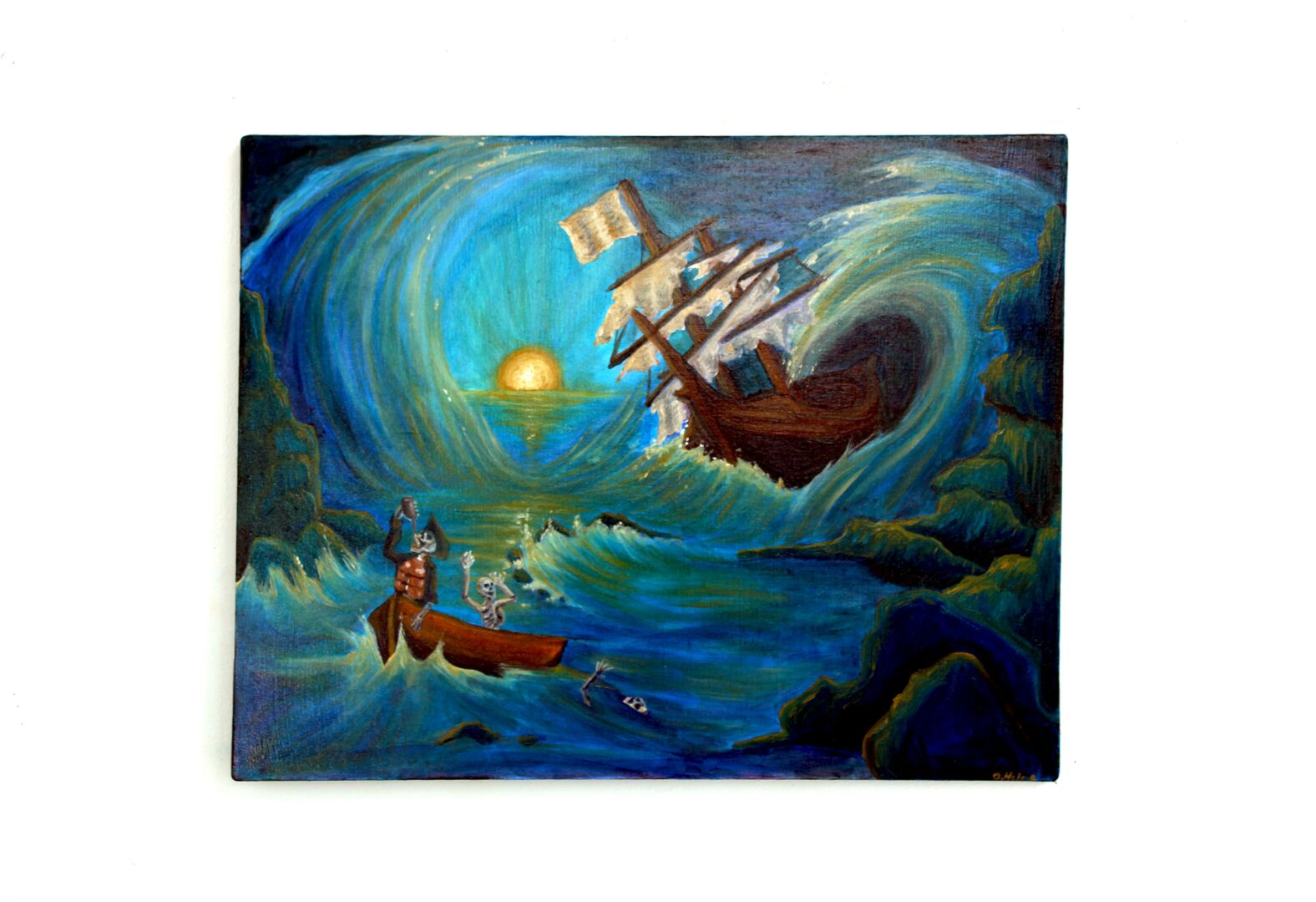We recently connected with Olivia Helms and have shared our conversation below.
Olivia, sincerely appreciate your selflessness in agreeing to discuss your mental health journey and how you overcame and persisted despite the challenges. Please share with our readers how you overcame. For readers, please note this is not medical advice, we are not doctors, you should always consult professionals for advice and that this is merely one person sharing their story and experience.
I have come to recognize that I have had depression and anxiety for about half of my life. Despite these many years, I have only been diagnosed with depression for about a month. Overcoming my mental health struggles had to do with me accepting that I had them in the first place. Growing up, showing any ounce of sadness was considered to be weak. By shedding tears, I was also naturally conforming to my biological nature. I never wanted to be seen as something weak or pitiful. I never wanted to be that type of girl or woman; I wanted to be strong. To be strong would mean that I had to suppress all my negative emotional feelings. The feelings I suppressed emerged throughout my art. Through every symbol, color, and brushstroke, the emotion of all I had been holding would pour out to make a painting for everyone to see, unbeknownst to the true process and intent. My artwork acted as a barrier. Art has helped me, in multiple ways, become more comfortable expressing and talking about my mental health. When I started school at KCAI, I felt more comfortable being honest with myself and others that depression and anxiety were issues that I struggled with; however, I still doubted myself many times by constantly comparing myself to others along with overhearing discussions with my family and their prejudice against emotion. I went through a period of denial, therefore neglecting my mental health and any progress I had made. Eventually, I realized that being stuck in a constant miserable loop was not what I wanted. I was exhausted. I was terrified to get better, but I wanted to be a better person, not just for those in my life but also for me. I have to be stuck with myself for the rest of my life, so I might as well be ok with being alone with myself without hating myself. Therefore, I decided to accept the truth about my mental health. While my process of making art is still similar to the past, I am learning to be more open to talking about the meaning behind my art and expressing more about myself and my process. Overcoming mental health struggles is difficult and is something I am still learning how to persist through; however, I have overcome the neglect and denial, and through pushing myself and making art, I am getting better everyday.

Let’s take a small detour – maybe you can share a bit about yourself before we dive back into some of the other questions we had for you?
I am working towards making the most of what I can with my art through new processes, mediums, and subjects. I find my art to be special through my use of color as well as my surrealist, dreamlike landscapes. I tend to paint those close to me within my personal life as they give a more personal feeling to my paintings. I have been inspired most by the Surrealist and Impressionist movements and look to inspiration through artists such as Kay Sage, Berthe Morisot, Vincent Van Gogh, and Claude Monet. I am currently focused most on being a student, and I am planning to start to take commissions.

Looking back, what do you think were the three qualities, skills, or areas of knowledge that were most impactful in your journey? What advice do you have for folks who are early in their journey in terms of how they can best develop or improve on these?
I would say the three things that have been most impactful to my artistic journey so far are my work ethic, my passion, and my eagerness to explore and learn. In my opinion, you can’t further any journey you are attempting to achieve if you don’t have the passion for it. Passion is not something that you can improve on, but it is a feeling, a drive, of something you want so bad that you will do anything to get it. That passion is where work ethic comes in. If you want to pursue something that you believe is your dream, then you have to be willing to put in the work for it and learn about everything there is to know, explore whatever you can, and talk to others who share similar interests. If you are willing to work at it, then you have found your passion, and should you pursue you will find fulfillment.

To close, maybe we can chat about your parents and what they did that was particularly impactful for you?
My parents were honestly very supportive of my art. They always knew I enjoyed doing art, but I believed that they had thought I had just found a hobby. When I was planning to tell them about my decision to pursue art (at an art school, at that), I expected them to immediately steer me away from the idea. To my surprise, they were completely okay with my choice and believed in me. I think that was why it was so impactful for me because I knew that meant that they believed in me.
Contact Info:
- Website: https://oliviahelms.myportfolio.com
- Instagram: loafandoats
- Youtube: loafandoats



so if you or someone you know deserves recognition please let us know here.




